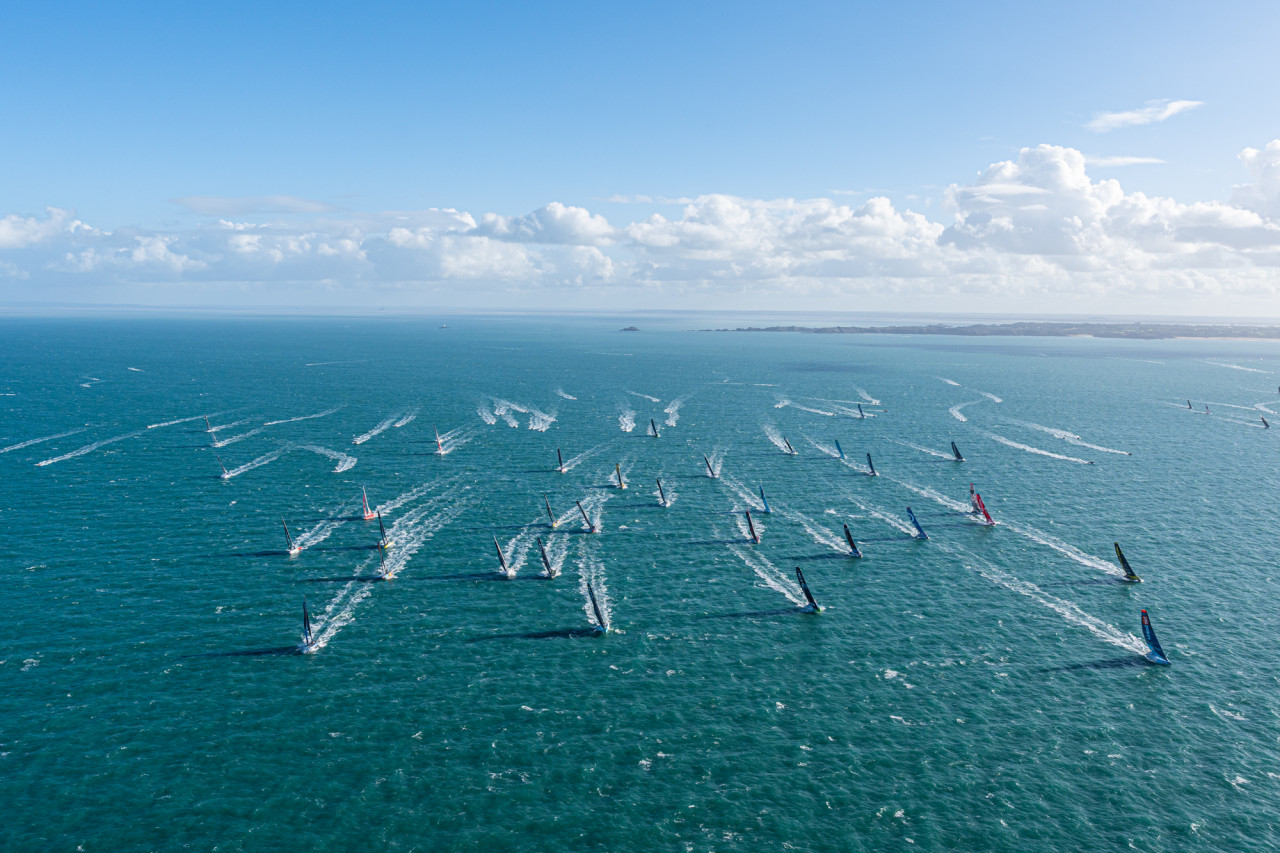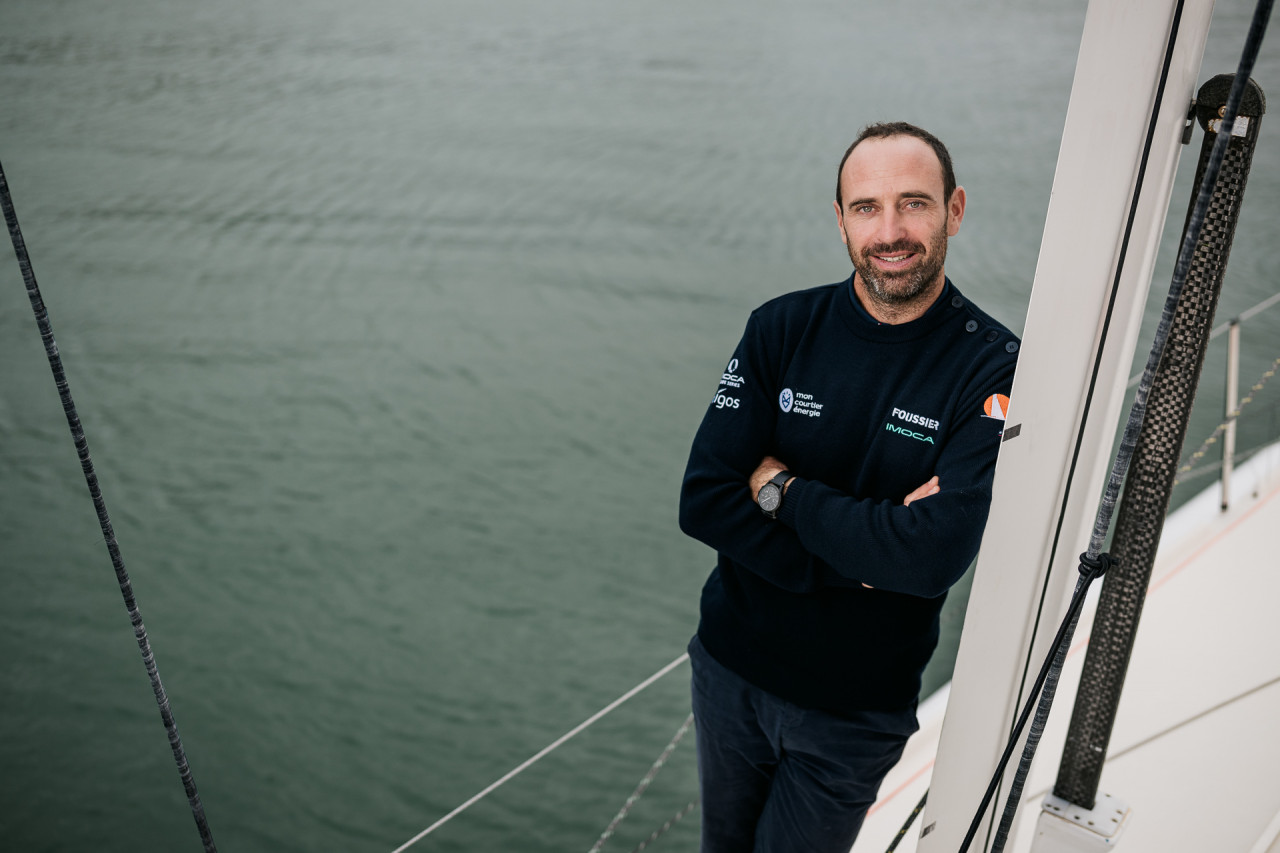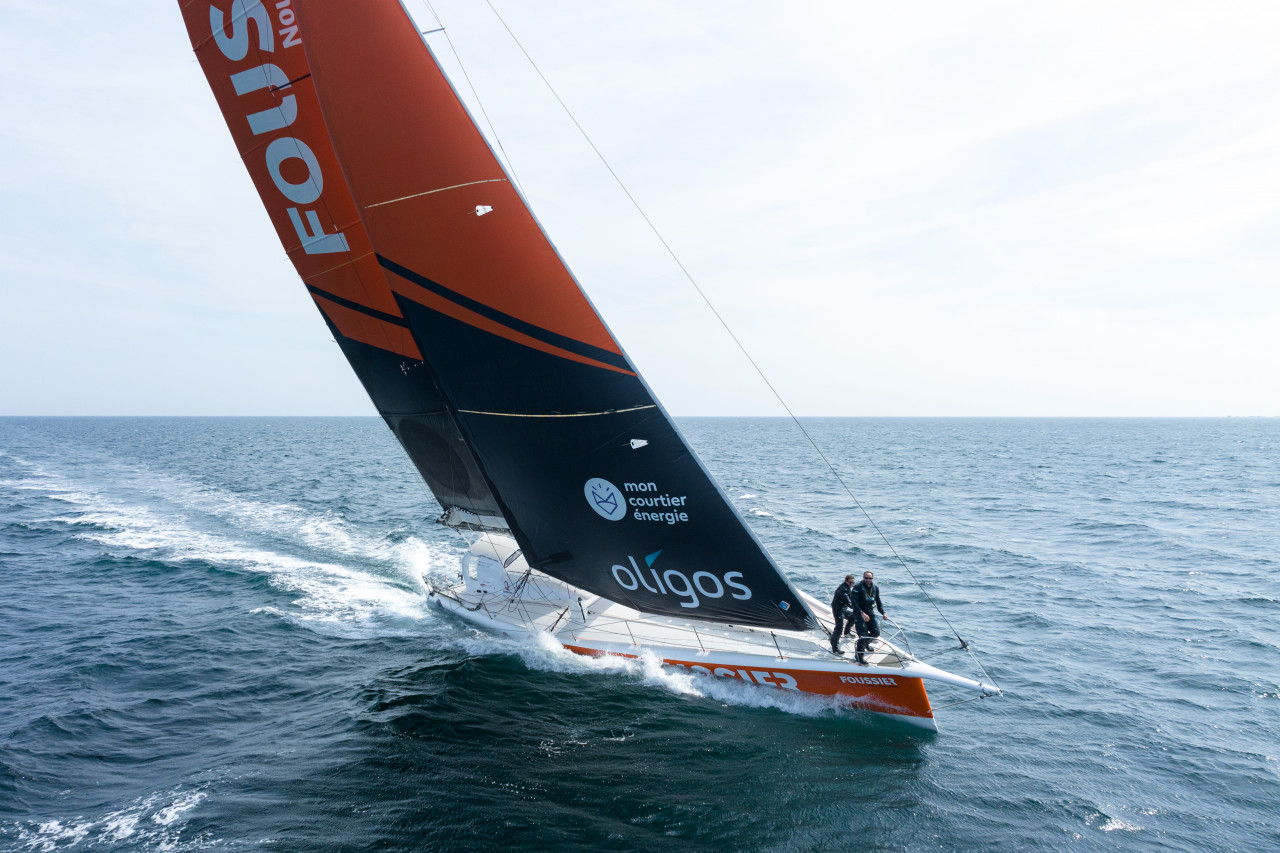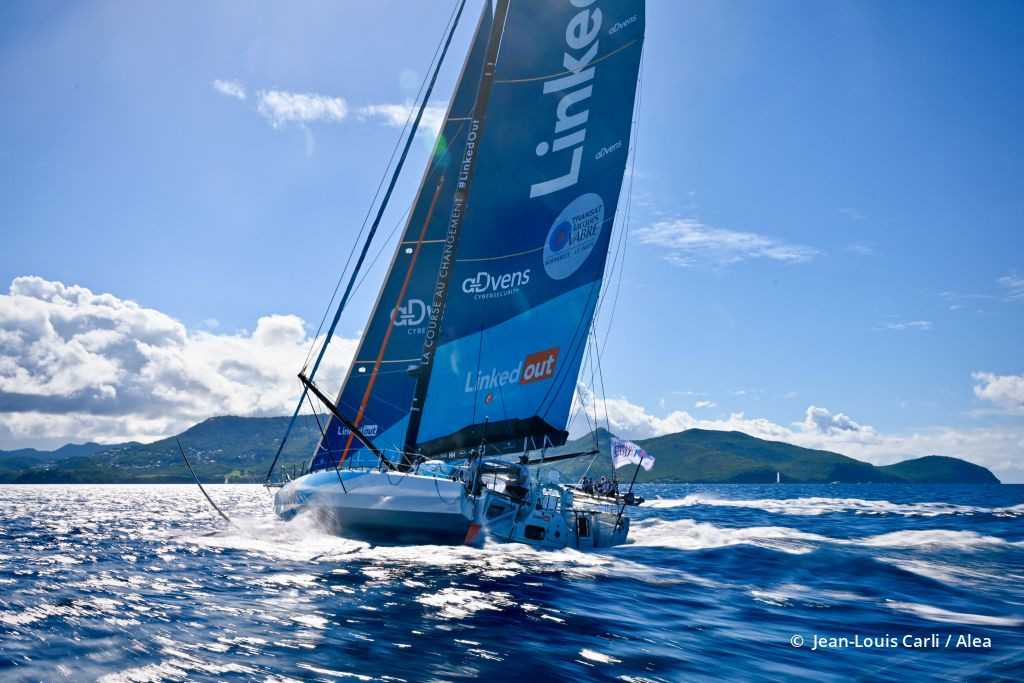The wait is over – it’s time for action as a record-setting IMOCA fleet prepares to set sail from Le Havre

After a nine-day delay, the historic start of the 2023 Transat Jacques Vabre-Normandie Le Havre for the IMOCA Class is finally upon us.
And it will be have been worth the wait as, for the first time in the Class’s history, 40 boats will gather on the startline on Tuesday, ready to take on a tough opening on the classic route to the Caribbean island of Martinique.
It has been a long and unprecedented wait during an exceptionally turbulent autumnal weather pattern, but everyone associated with the Class is now ready to see the fastest and most exciting monohulls in world offshore racing set free once more.
Thomas Ruyant who is sailing with Morgan Lagravière on the new Antoine Koch/Finot Conq-designed For People – a boat returning to racecourse after repairs – says this is shaping up to be a “magnificent” moment for the Class.
“We’re getting ready for the start of something we’ve never seen before,” said Ruyant. “Forty IMOCA boats at the start of a race is a big first, so Morgan and I are happy to be part of it. We can’t wait to get out on the water and race, and we’re going to have a great time.”
Class President Antoine Mermod says it’s not just about 40 boats but their quality too. “To be honest, it’s not just 40 boats, but 40 high-level boats, high-level skippers – including no less than nine mixed male and female crews – and also very strong projects,” he said.
During the delay, skippers have returned home to spend time with their families while shore teams have kept their eye on their boats as the big storm of last week passed through Le Havre. But it has not been all that relaxing for many as they waited for news of a new start schedule.
Sébastien Marsset, skipper of Foussier-Mon Courtier Energie who is sailing with Sophie Faguet, said he enjoyed taking a bit of time off to start with. “But I have been quite busy re-organising stuff, getting the team ready and sorting out all the logistics questions, many of which are still not decided,” Marsset said.
 © Jean-Louis Carli / IMOCA
© Jean-Louis Carli / IMOCA
“So there has been a lot of discussions and meetings,” he added. “It has also been hard to explain the situation to partners and sponsors – why we were stuck at the dock in Le Havre while smaller boats (Class 40s) were leaving last Sunday.”
Now the focus is very much on the racing as, once again, the skippers and shore teams go through their practised pre-start routines, analysing the weather and loading the boats with fresh food.
Mermod says the delay will be out of their minds as the race takes centre-stage. “These are top professional sailors who are highly motivated and experienced,” he explained. “When the race was delayed they went back home and just rested and had some time for everyday activities. Then, since Thursday, when this window for Tuesday became possible and was then confirmed on Friday, they have switched back into racing mode and the process they go through towards the start. Now they are in this phase in order to be 100% focused for tomorrow…”

It’s an analysis with which Marsset concurs. He laughed when he spoke about his desire to finally get going on what will be his third Transat Jacques Vabre. “I’ve been really happy not have been on the water during the storm,” he said, “but now we really have to leave – it’s time to leave, it’s time to leave! We are trying to get back into our routine, looking at the weather, getting the final food on board, getting ready for the dock-out process – we all need to leave – skippers, shore teams, sponsors…everybody…”
Even if the worst of the recent weather has now passed, this will still be a tough upwind start before the skippers can think of some tradewind sailing in the sunshine. Ruyant, who will be looking for a first win in his new boat to follow his victory in the last Transat Jacques Vabre, says it will be a challenging and complex opening at the start of a shortened course that will take the fleet directly to Martinique.

“We’re going to have two days of low pressure winter conditions, a classic transatlantic start from Le Havre,” he said. “The route isn’t necessarily that simple with a few northerly options that are taking shape, even if we leave the Azores to starboard, and there are some southerly routes too.
“It’s going to be a challenging race. Everyone agrees that, for the first two days, it’s going to be upwind in the English Channel and, behind the front, the route will be fairly fast towards Cape Finisterre, or perhaps a little further west depending on how the forecasts develop,” he added.
Mermod notes that this Transat Jacques Vabre marks the conclusion of a fascinating two-handed season for the Class in 2023 that has seen different skipper/co-skipper pairings win each of the first three races. “That means it is very open for the result of this race,” he said.
He is expecting a spectacular start with great visuals, but it will also be a measured one as crews ease their way into a long race that could take 11-12 days, and one where keeping the boat in one piece in the early stages will be critical.
“It will be a balance between starting strongly – because it is very important to be first in a big fleet like this – but also you need to be careful and conservative, because we are talking about a long race of maybe 12 days, and sometimes you have more to lose at the start than to gain,”Mermod said.
Ed Gorman
Teams info
The Transat CIC: a spectacular start!
Brittany turned on its best Spring sailing weather – sunshine, puffy cumulus clouds and a decent 10-15kts of Westerly wind – to send the 48 strong Transat CIC fleet on its way from Lorient towards New York for the start …
•••Charlie Dalin: Raring to go on his first solo The Transat CIC
It’s good to see Charlie Dalin back where he belongs, at the helm of his almost brand new Guillaume Verdier IMOCA, Macif Santé Prévoyance, ready to take on the north Atlantic in The Transat CIC.
•••
